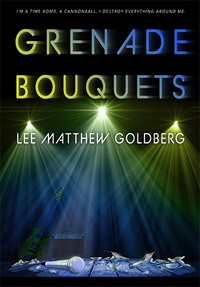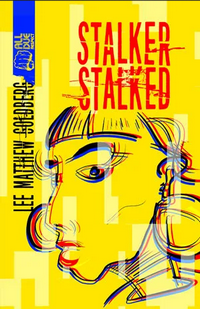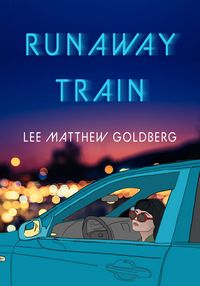
What’s Runaway Train About?
Following the shocking death of her sister at 17 (from a brain aneurysm), sixteen-year-old Nico is spiraling out of control. Never the best student, and far more interested in being everything her high-achieving, popular sister wasn’t, Nico’s focus is on getting high, listening to as much grunge as she can, and fantasizing about meeting Kurt Cobain (who would fall for her, leave Courtney, and the rest would be history).
When things at home—which haven’t been good for a long time—take a turn for the worse, Nico is at the end of her rope and doesn’t know what to do. Her best friends talk her into leaving home and hitting the road, to go cross things off her bucket list before her own aneurysm cuts her life tragically short. Although they’d decided to run away together, Winter and Jeremy leave her in the lurch—Winter tells her that she needs this trip to hit rock bottom so she can pick up the pieces left by Kristen’s death (although I think this is largely a lie, and Winter just doesn’t have the courage to go through with it, but this sure sounds good).
So she packs up her teal blue Hyundai Excel with some essentials, a lot of batteries, her Walkman, and her father’s gas card and takes a trip up the California coast on the way up to Seattle, to see what the grunge scene is “really like,” cross some things off that bucket list, and hopefully get the chance to tell Cobain what his songs have meant to her.
Here’s where I get some egg on my face—I know Goldberg’s primarily a thriller writer, and assumed* that this would be one, too. That shortly after Nico left L.A. something would happen and this would become a thriller, with Nico doing all she could to stay alive and/or evade the police while on the run from something/someone/multiple someones. But no, that’s it. It’s the story of a girl living in her Hyundai trying to put the pieces of herself together.
* and you know what happens when you assume…
90s Referencepalooza
The first sentence of the book includes the date October 31, 1993. But then, as if Goldberg isn’t sure that his readers will understand that he means it, he hits you over and over and over with references to the early 1990s. There are over a dozen references in the first 3% of the book. And there are multiple stretches of the book that are like it. They eventually taper off, but it takes a while before Goldberg seems to think that he’s established the setting.
Now I enjoyed almost every one of the references and thought they really grounded things. But it also felt like overkill. Like he didn’t trust his audience to remember that these events took place in 1993 and 1994. Although it’s just as likely, maybe more likely, that Goldberg was having so much fun with them that he didn’t want to cut any of the references. And I get that, I really do. But I think it might have carried more punch if he’d been a little less effusive with them.
Embracing the Ambiguity, Pt. 2
A couple of months back, I wrote about a book that included elements that could be supernatural or they could be an expression of the protagonist’s PTSD. I mentioned at the time how that writer leaving it up to the reader to decide was a great idea, how it’s more effective that we don’t really know which it is.
And here I’m repeating myself—there’s something that happens to Nico several times in the book that could be a product of her subconscious or could be a supernatural event. I initially ascribed it to a psychological phenomenon—trauma, or grief, or something. I think it’s written so that you think it’s a physiological thing. But at some point, I joked to myself, “Unless, of course, it is a ghost.” And then I couldn’t talk myself out of the joke—it really, really could be a ghost. Or it could be a manifestation of Nico’s subconscious. I could defend either position from the text, I think. And I really liked that.
So, what did I think about Runaway Train?
I really got swept up in this story and with Nico’s journey. How does your heart not go out to a girl in that much pain? A dead sister, parents who aren’t dealing well with her, friends (more important to you than family at this stage of life) basically shoving her out the door on her own. and a strong sense of your own impending death? She doesn’t just hit rock bottom, she ultimately throws herself at it. But also, there’s an element of envy for the reader—you wanted to have the guts/folly to do something like Nico does at that age, and even now (however much older you are than her), you’d like to have the ability to do that.
Put those two elements together? How do you not have a warm spot in your heart for this book?
Yes, it’s clearly fiction. Yes, it’s heightened and only semi-plausible—both the high points and the low. But…it feels real. I can absolutely believe that I could sit down with Nico or Evan (since he’s from this area) today over a cup of coffee and hear them tell me about this time in their life.
I was more than a little surprised to see that there’s going to be a sequel to this. Typically, coming-of-age novels are one-and-done. But I’m on board—I want to see what the next chapter is for Nico. I can’t imagine all her problems were worked through in this book, and as much progress as she made (and looks to continue making), there’s no way that the work is done and I’m looking forward to seeing her continue it.
I absolutely recommend this to you—like its central character and her musical idol, Runaway Train is occasionally a mess, but there’s a heart to it. There’s an ineffable quality that’s going to make you want to pay attention to it and see how it can shine.
Disclaimer: I received this novel from the author in exchange for my honest opinion.

This post contains an affiliate link. If you purchase from it, I will get a small commission at no additional cost to you. As always, opinions are my own.




![]()




